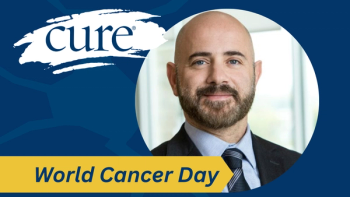
What About Clinical Trials for Cancer?
A former clinical trial designer at the National Cancer Institute offers patients with cancer advice on why they should consider joining clinical trials and provides insight into two common misconceptions about trials.
I recently moderated a virtual workshop for seven patients with cancer who were diagnosed within the past six months, along with their primary caregivers. And the subject of clinical trials came up.
As someone who spent 30 years designing clinical trials and analyzing outcomes for the National Cancer Institute, I recently put together a resource for newly diagnosed patients with cancer. One of the sections in the resource is called “Getting Treatment: The Basics of Cancer Care, Standard Treatment vs. Clinical Trials.”
But, as I learned during the workshop, it seems that many want more information regarding the topic of clinical trials.
There were three people in the workshop who had just been diagnosed and were still looking at what their treatment options might be, once their differential diagnoses were completed. Two more were diagnosed less than three months ago, with very serious stage 3 and 4 cancers. Two more participants were diagnosed four months ago, had undergone surgery, and were already receiving standard treatment.
All of them were still fuzzy on the idea of clinical trials and wanted to know if they should be considering them. In fact, depending on the type and site of the cancer, and where they were willing to go for treatment, any of them might be a candidate for participating in a clinical trial.
None of them had been told that there was a standard treatment available for their cancer that worked extremely well in other patients who shared the same characteristics as themselves (for example, age, gender, race).
If I were in their place, I’d want to check out other treatment options. They all agreed they would like to check further into clinical trials and asked for basic information on why, and how to go about it.
So, first, here are the basic reasons why you might want to consider becoming a participant in a clinical trial.If you:
- Have a cancer for which there is currently no standard treatment that has been shown to be routinely effective in reducing or curing your cancer.
- Have a cancer for which the standard treatment has been effective in some patients, but not shown to be effective for many others.
- Are diagnosed with a later stage disease or were treated for your cancer, but it recurred later.
- Have a cancer for which the standard treatment has been effective, but for which the researchers are looking for new ways to reduce the side effects or to find new approaches that work as well or better than standard treatment.
- Want to consider a treatment that will take less time, cost less, or need less radical surgery or high doses, but still have the same or better outcome.
Clinical trials are basically studies funded by the government, by other cancer foundations, and by pharmaceutical and medical device companies who are developing new cancer-fighting treatments and techniques.
The results of clinical trial studies, called “treatment outcomes” may include better methods for eliminating a cancer tumor or cancer cells, shrinking the tumor’s size, stopping the cancer cells from multiplying, keeping cancer from spreading, and/or keeping it from coming back. Or, the outcomes may focus on easing post-treatment nausea, avoiding side effects, bolstering the immune system’s defense against infection or other secondary illnesses, or managing pain. These second set of treatment outcomes may be of benefit to patients, even if they have already begun a standard course of treatment.
There are, however, two misconceptions about clinical trials. First, that patients who are being treated are human “guinea pigs.” I reassure patients that laboratory testing of these treatments has been exhaustive before it reaches being studied in humans. Also, if a patient participates in a study assessing a drug, they will not be given a “sugar pill,” or placebo, instead of a cancer treatment drug or drugs. They will either receive the new treatment or treatment protocol that is the subject of the study, or they will receive the standard treatment.
The amount of available clinical trials can vary from none to many depending on the disease. A trial may be available for a patient, but it could be in another part of the country and patients need to determine if they want to go there for treatment. Or, one could exist, but patients may be excluded from participating for a variety of reasons.
Eligibility requirements are developed when a study is designed to protect the volunteer patients from any undue risk, and to make the results of the research more reliable.
Understand that it is possible that a doctor just doesn’t know about any, or all, trials for a type of cancer. They could also have a bias against clinical trials or may say they are too expensive and mostly not covered by insurance.
I would suggest checking them out anyway. A patient, with or without a doctor, can look up which oncology doctors are conducting clinical trials for a specific disease in PDQ, a
Many drug companies often bear costs associated with their trials and may pay patients for participating. Also, many government-funded trials are conducted at cancer centers that have found financial resources to help patients whose insurance is inadequate.
Lastly, I advise patients not to think they aren’t treatable if they don’t qualify for a study. They may be eligible for another trial, whether it’s an ongoing one or happening later.



